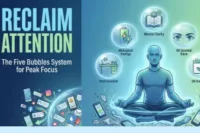7 Essential Financial Literacy Skills for Student Financial Wellness in 2025
Published: 27/03/2025
Let’s be honest: managing money in college can feel like trying to solve a puzzle with missing pieces. One minute you’re fine, and the next, you’re wondering where all your money went.
Sound familiar? You’re not alone.
A recent survey found that 42% of college students carry credit card debt, with 28.2% owing $2,000 or more (money.usnews.com).
But here’s the good news: you don’t need to be a finance expert to take control of your money. By mastering a few key skills, you can reduce stress, avoid debt, and set yourself up for a brighter financial future. Let’s dive into the 7 essential financial skills every student should know in 2025.
Budgeting: Your Money’s Best Friend
Budgeting isn’t about cutting out all the fun—it’s about knowing where your money goes so you can make smarter choices. Think of it as a roadmap for your finances.

Why it’s Essential:
Budgeting helps you manage daily expenses, avoid overspending, and stay on track with your financial goals.
How to Budget Effectively:
- Use the 50/30/20 Rule: Allocate 50% of your income to needs (rent, groceries), 30% to wants (entertainment, dining out), and 20% to savings or debt repayment.
- Try budgeting apps like Mint, YNAB (You Need A Budget), or PocketGuard to automate tracking.
Example: A student earning $1,000 a month could spend $500 on needs, $300 on wants, and save $200.
Saving: Small Steps, Big Results
Saving money doesn’t have to feel like a chore. Think of it as building a safety net for your future self. Even small amounts can add up over time, especially when you start early.
Importance of Emergency Funds:
Having just $500 saved can save you from financial stress when unexpected expenses pop up.
Best Saving Habits for Students:
- Automate Savings: Set up automatic transfers to your savings account every payday.
- Use High-Yield Savings Accounts: These accounts offer better interest rates, helping your money grow faster.
Example: One student saved $1,000 in a year by skipping daily coffee runs and putting $3 into savings every day.
Credit & Debt: The Good, the Bad, and the Ugly
Credit can feel like a mystery, but it’s a crucial part of your financial life. Think of it as your financial reputation—good credit opens doors, while bad credit can slam them shut.
Why Credit Matters:
Your credit score affects everything from renting an apartment to getting a car loan.
How to Avoid Student Loan Debt:
Borrow only what you need and explore scholarships or part-time work.
How to Use Credit Cards Wisely:
Pay off your balance in full each month to avoid high-interest debt.
Quick Hack: Set up payment reminders to avoid late fees and protect your credit score.
Smart Spending: Think Before You Buy
We’ve all been there—clicking “Buy Now” on something we don’t really need. But smart spending is about making intentional choices that align with your goals.
Needs vs. Wants: Ask yourself, “Do I really need this, or do I just want it?”
The 24-Hour Rule: Wait 24 hours before making a purchase. If you still want it, go for it!
Example: A student saved $200 in a month by using the 24-hour rule and cutting back on unnecessary online shopping.
Investing: Start Small, Grow Big
Investing might sound intimidating, but it’s one of the best ways to grow your money over time. Think of it as planting a tree—the earlier you start, the bigger it grows.
Why Start Investing Early?
Thanks to compound interest, even small investments can grow significantly over time.
Best Beginner Investment Options:
- Index Funds: Low-cost funds that track the stock market.
- Mutual Funds: Professionally managed portfolios.
- Digital Assets: Crypto-currencies or robo-advisors for tech-savvy investors.
Example: Investing just $100 a month with a 7% return could grow to over $20,000 in 10 years.
Avoiding Common Financial Mistakes
We all make mistakes, but learning from them is what matters. Here are some common pitfalls and how to avoid them:
- Overspending & Budgeting Mistakes: Track your spending regularly to stay on top of your budget.
- Not Saving Early Enough: Even $10 a week can add up to over $500 in a year.
- Ignoring Credit Health: A good credit score can save you thousands in interest rates over your lifetime.
Keep Learning and Prepare for the Future
Financial literacy isn’t a one-time lesson—it’s a lifelong journey. The skills you learn today will help you navigate current challenges, but staying ahead means preparing for what’s coming next. Let’s talk about how you can keep learning and future-proof your finances for 2025 and beyond.
How to Keep Learning Today
Look for online or local events to expand your knowledge and connect with experts.
Read These Books:
Rich Dad Poor Dad by Robert Kiyosaki: Learn the basics of investing and building wealth.
The Total Money Makeover by Dave Ramsey: Get practical tips for budgeting and getting out of debt.
Take Free Financial Courses:
Platforms like Khan Academy and Coursera offer beginner-friendly courses on budgeting, saving, and investing.
Check out NEFE (National Endowment for Financial Education) for free resources tailored to students.
Use Finance Apps:
Mint: Track your spending and create budgets effortlessly.
Acorns: Start investing with just your spare change.
Robinhood: Learn the basics of trading without fees.
Attend Financial Literacy Workshops:
Look for online or local events to expand your knowledge and connect with experts.
How to Prepare for the Future (2025 Trends)
Stay future-ready by embracing AI, managing gig income wisely, and investing sustainably.
Embrace Technology:
AI and robo-advisors are changing the way we manage money. Apps like Betterment and Wealthfront use AI to create personalized investment plans—perfect for beginners.
Adapt to the Gig Economy:
With more students taking on freelance or part-time work, it’s important to budget for irregular income. Apps like YNAB (You Need a Budget) can help you manage variable earnings.
Explore Sustainable Investing:
Ethical spending and investing are becoming more popular. Look into ESG (Environmental, Social, and Governance) funds to align your investments with your values.

Stay Flexible:
The world of work is changing fast. Build an emergency fund and learn new skills to stay adaptable in a shifting job market.
Your Next Steps
- Start Small: Pick one resource (like a book or app) to explore this week.
- Think Ahead: Consider how trends like AI and the gig economy might impact your finances.
- Keep Growing: Financial literacy is a journey—keep learning, stay curious, and adapt as the world changes.
Parents and Educators: Help Students Build Financial Literacy
Financial literacy isn’t just a skill—it’s a gift that lasts a lifetime. As a parent or educator, you play a huge role in helping students develop healthy money habits. Here’s how you can make a difference:
Tips for Parents
- Start Early: Teach kids the basics of saving and spending with a piggy bank or allowance.
- Lead by Example: Show them how you budget, save, and make smart financial decisions.
- Use Real-Life Scenarios: Involve them in family budgeting or grocery shopping to teach money management.
- Encourage Questions: Create an open environment where they feel comfortable asking about money.
Resources for Educators
- Incorporate Financial Literacy into Lessons: Use free resources from NEFE (National Endowment for Financial Education) or Jump$tart Coalition.
- Host Workshops: Organize sessions on budgeting, saving, and investing for students.
- Use Interactive Tools: Platforms like Next Gen Personal Finance offer games and activities to make learning fun.
- Partner with Experts: Invite financial advisors or local bankers to speak to students.
Your Role Matters
By teaching financial literacy, you’re not just helping students manage money—you’re giving them the tools to build a secure and confident future.
Did You Know? Fun Facts About Money & Financial Literacy
Money doesn’t have to be boring! Here are some surprising and fun facts to make you think twice about your finances:
- Small Savings Add Up: Saving just $10 a week “adds up to”$520” in a year. That’s enough to start an emergency fund or invest in your future.
- Cash Feels Real, Cards Don’t: People spend 12-18% more when using credit cards instead of cash because it doesn’t feel like “real money.”
- Stock Markets Have History: The first stock exchange started in Amsterdam in 1602 to trade shares of the Dutch East India Company. Today, the global stock market is worth over $95 trillion!
- Millionaires Aren’t What You Think: Most millionaires don’t drive fancy cars or live in mansions. In fact, 80% of millionaires in the U.S. started by saving and investing early.
- Student Loans Are Huge: The total student loan debt in the U.S. is over $1.7 trillion—that’s more than the GDP of some countries!
- Wait Before You Buy: Waiting 24 hours before making a purchase can cut impulse spending by up to 30%. Your future self will thank you!
- Start Investing Early: If you invest just $100 a month “starting at age 20, you could have over “$ 1 million” by the time you retire. That’s the power of compound interest!
“Now that you’ve learned some surprising facts about money, let’s recap how you can take control of your financial future!”
Your Financial Future Starts Today
Let’s be real: managing money can feel overwhelming, especially when you’re juggling classes, work, and a social life. But here’s the truth—you don’t have to figure it all out at once. By focusing on these 7 essential skills, you’re already ahead of the game.
Think of it like this: every dollar you save, every budget you stick to, and every smart financial choice you make is a step toward a future where money works for you, not against you. Whether it’s building an emergency fund, paying off debt, or starting to invest, small actions today lead to big wins tomorrow.
“A big part of financial freedom is having your heart and mind free from worry about the what-ifs of life.”Financial expert Suze Orman
Here’s Your Game Plan:
- Start Small: Pick one skill to focus on this week—maybe it’s tracking your spending or setting up a savings account.
- Celebrate Progress: Every step counts, no matter how small. Saved $10 this week? That’s a win!
- Keep Learning: Financial literacy is a journey, not a destination. Use tools like budgeting apps, free courses, or books to keep growing.
🚀 Ready to Take Control?
Remember, you don’t have to be perfect. You just have to start. Your future self will thank you for the effort you put in today. So, what are you waiting for? Let’s build that bright financial future, one smart decision at a time.
FAQs: Your Financial Literacy Questions Answered
Automate your savings by setting up recurring transfers to a high-yield savings account. Even small amounts, like $10 a week, can add up over time.
Start with a student credit card, use it for small purchases, and pay off the balance in full every month. This helps build a positive credit history without falling into debt.
Begin with low-cost options like index funds or robo-advisors. Apps like Acorns or Robinhood make it easy to start with small amounts.
Start by tracking your income and expenses. Use the 50/30/20 rule: 50% for needs, 30% for wants, and 20% for savings or debt repayment. Apps like Mint or YNAB can make it easier.
Focus on high-interest debt first (like credit cards), but try to save a small emergency fund simultaneously. Once the debt is paid, ramp up your savings.

- Be Respectful
- Stay Relevant
- Stay Positive
- True Feedback
- Encourage Discussion
- Avoid Spamming
- No Fake News
- Don't Copy-Paste
- No Personal Attacks

- Be Respectful
- Stay Relevant
- Stay Positive
- True Feedback
- Encourage Discussion
- Avoid Spamming
- No Fake News
- Don't Copy-Paste
- No Personal Attacks





